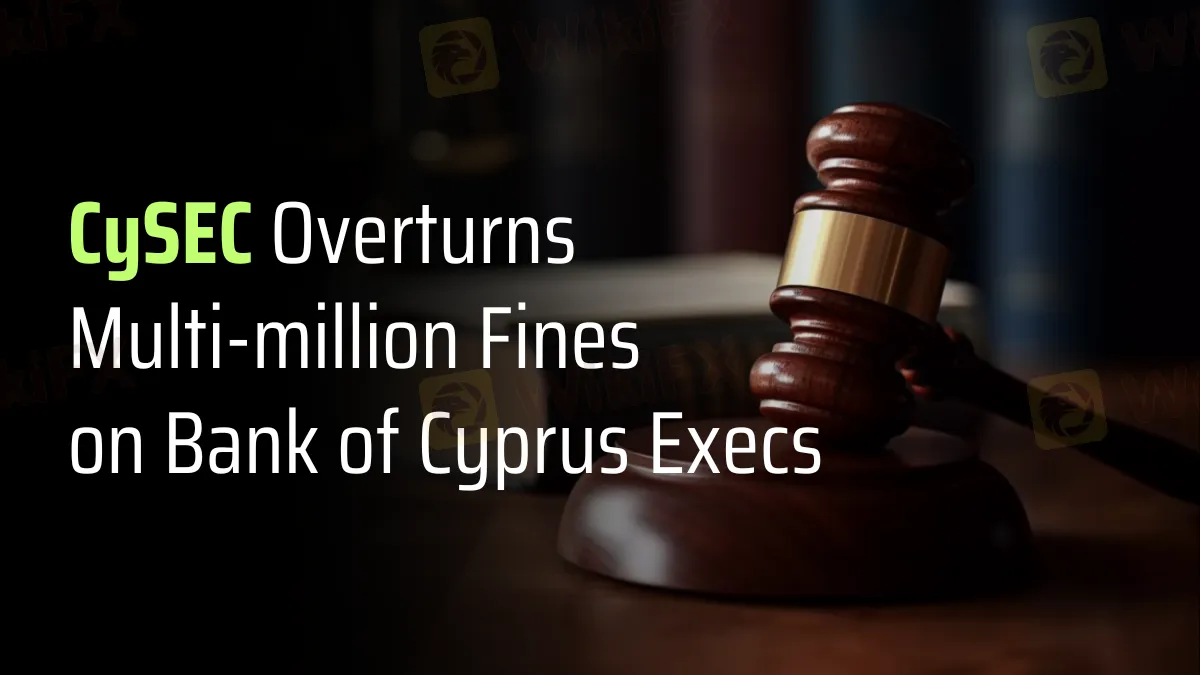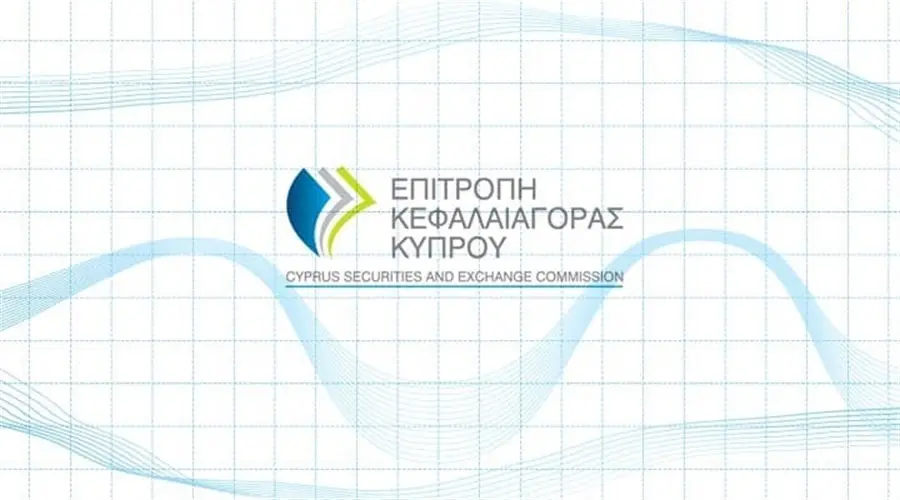简体中文
繁體中文
English
Pусский
日本語
ภาษาไทย
Tiếng Việt
Bahasa Indonesia
Español
हिन्दी
Filippiiniläinen
Français
Deutsch
Português
Türkçe
한국어
العربية
CySEC Overturns Multi-million Fines on Bank of Cyprus Execs
Abstract:The court overturned the Cyprus Securities and Exchange Commission's 2014 fines on Bank of Cyprus executives, citing an impartiality breach.

The Cyprus Securities and Exchange Commission (CySEC) announced today (Monday) that the Administrative Court has annulled a series of fines imposed on former executives of the Bank of Cyprus Public Company Ltd in 2014. The court's decision was based on a breach of impartiality during the original decision-making process.
On June 14 and May 21, 2024, the court overturned the administrative fines against 13 former officials of the Bank of Cyprus. These fines were initially imposed following an investigation into the bank's Greek Government Bonds (GGB) investments. The penalties, dated April 28, 2014, were associated with alleged violations of transparency requirements and public offer regulations.
The Administrative Court found that these decisions were “without basis” due to a previous ruling by the Supreme Constitutional Court. In Appeal No. 99/2022, the Supreme Constitutional Court determined that CySEC's 2014 decision was compromised by “a breach of the objective aspect of the principle of impartiality.” This breach occurred because the Chairman of CySEC participated in the decision-making process.

The annulment affects prominent figures in Cyprus' financial sector, nullifying the penalties imposed on 13 individuals. A decade ago, CySEC had issued fines ranging from €80,000 to €350,000, collectively amounting to a multi-million-euro financial penalty package.
According to the court's decision, “An amount of €1,500 plus VAT shall be awarded in favor of the applicants and against the defendant in each action.” This marks a significant financial and reputational relief for the affected individuals.
The Bank of Cyprus, a financial services company founded in 1899 and headquartered in Strovolos, is distinct from the country's leading monetary institution, the Central Bank of Cyprus. In 2017, CySEC imposed another fine on the Bank of Cyprus, its former CFO, and ten directors, totaling over €595,000 for accounting disclosure failures and other infractions. These fines followed CySEC's investigation into violations by the firm, its board members, and its former CFO due to negligence.
Recently, CySEC has been active with new initiatives. Last week, CySEC launched its Regulatory Sandbox, which is now open for applications from entities involved in FinTech and RegTech in Cyprus. This initiative aims to foster innovation in the financial sector by providing a controlled environment for testing new technologies.
In addition, in July, CySEC announced the launch of a thematic review concerning managing uninvested funds by Cyprus Investment Firms (CIFs) on behalf of clients. This review, known as 'the Exercise,' aims to evaluate how CIFs handle these funds, including the payment of interest or returns.
In June, the regulator launched a consultation to gather market views on proposed fees and reporting requirements under the Markets in Crypto-Assets Regulation (MiCA). This initiative invites stakeholders to provide their opinions and influence the future framework, with responses due by July 17, 2024.
The annulment of the fines by the Administrative Court represents a significant development in Cyprus' financial regulatory landscape, highlighting the importance of impartiality in regulatory decisions. This decision impacts the individuals involved and sets a precedent for future regulatory actions in the country.

Disclaimer:
The views in this article only represent the author's personal views, and do not constitute investment advice on this platform. This platform does not guarantee the accuracy, completeness and timeliness of the information in the article, and will not be liable for any loss caused by the use of or reliance on the information in the article.
Read more

The Hidden Checklist: Five Unconventional Steps to Vet Your Broker
Forex broker scams continue to evolve, employing new tactics to appear credible and mislead unsuspecting traders. Identifying these fraudulent schemes requires vigilance and strategies beyond the usual advice. Here are five effective methods to help traders assess the legitimacy of a forex broker and avoid potential pitfalls.

Doo Financial Obtains Licenses in BVI and Cayman Islands
Doo Financial, a subsidiary of Singapore-based Doo Group, has expanded its regulatory footprint by securing new offshore licenses from the British Virgin Islands Financial Services Commission (BVI FSC) and the Cayman Islands Monetary Authority (CIMA).

CFI’s New Initiative Aims to Promote Transparency in Trading
A new programme has been launched by CFI to address the growing need for transparency and awareness in online trading. Named “Trading Transparency+: Empowering Awareness and Clarity in Trading,” the initiative seeks to combat misinformation and equip individuals with resources to evaluate whether trading aligns with their financial goals and circumstances.

Malaysian-Thai Fraud Syndicate Dismantled, Millions in Losses Reported
The Royal Malaysia Police (PDRM) has received 26 reports concerning the Nicshare and CommonApps investment schemes, both linked to a major fraudulent syndicate led by a Malaysian citizen. The syndicate’s activities came to light following the arrest of its leader by Thai authorities on 16 December.
WikiFX Broker
Latest News
ASIC Sues Binance Australia Derivatives for Misclassifying Retail Clients
WikiFX Review: Is FxPro Reliable?
Malaysian-Thai Fraud Syndicate Dismantled, Millions in Losses Reported
Trading frauds topped the list of scams in India- Report Reveals
YAMARKETS' Jingle Bells Christmas Offer!
AIMS Broker Review
The Hidden Checklist: Five Unconventional Steps to Vet Your Broker
WikiFX Review: Something You Need to Know About Markets4you
Revolut Leads UK Neobanks in the Digital Banking Revolution
Fusion Markets: Safe Choice or Scam to Avoid?
Currency Calculator



